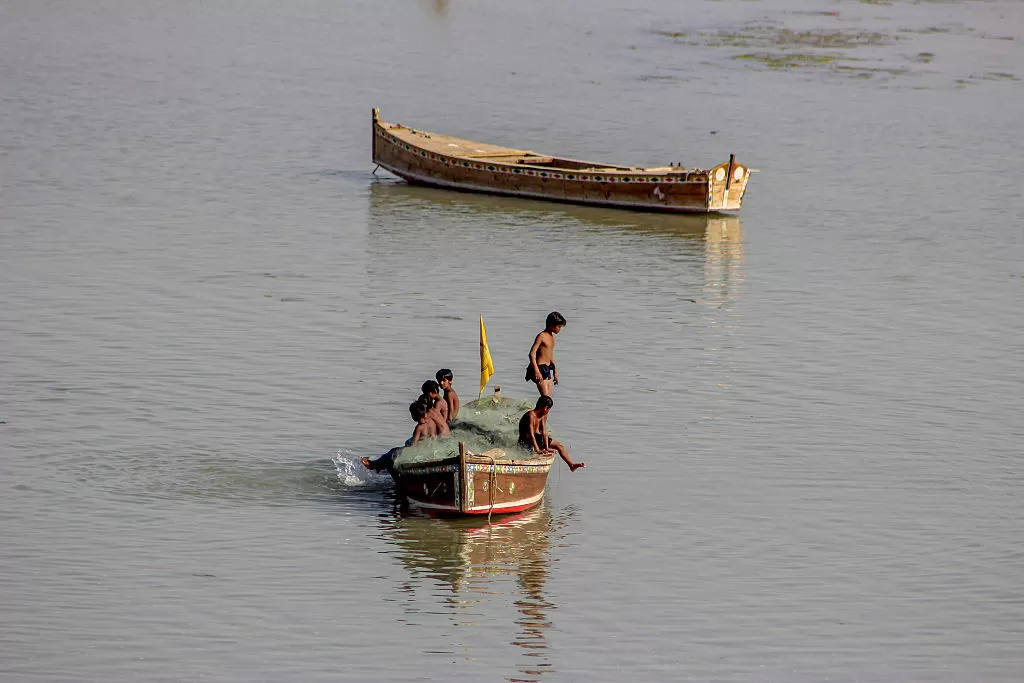Pakistan, a country that relies heavily on its water supply for agriculture, industry, and domestic use, is facing a major crisis. Climate change has already strained the country’s water resources, and to make matters worse, India has been making threats that could further exacerbate the situation. This is a cause for great concern and urgent action needs to be taken to address this issue.
Pakistan is an agricultural country, with the majority of its population relying on farming for their livelihood. The country’s economy is heavily dependent on agriculture, which is heavily reliant on water. However, due to climate change, the country’s water supply is becoming increasingly scarce. The changing weather patterns have resulted in irregular rainfall, increased evaporation, and melting of glaciers, leading to a decrease in the water supply.
According to a report by the United Nations Development Programme (UNDP), Pakistan is one of the most water-stressed countries in the world, with its per capita water availability decreasing significantly in the last few decades. This has had a direct impact on the country’s agriculture, which has seen a decline in yields and productivity. This, in turn, has led to a rise in food insecurity and poverty in rural areas.
In addition to climate change, India’s threats of diverting water from Pakistan’s share of the Indus River have added to the country’s water woes. The Indus River is the lifeline of Pakistan, and any interference from India could have catastrophic consequences. The Indus Water Treaty, signed in 1960, ensures that both countries get a fair share of the river’s water. However, India’s proposed projects, such as the Kishanganga and Ratle dams, could significantly reduce the flow of water to Pakistan.
This is not the first time India has threatened Pakistan’s water supply. In the past, India has stopped water flow to Pakistan during times of conflict, violating the Indus Water Treaty. This has led to water shortages and crop failures in Pakistan, causing immense hardship for its people.
These threats from India are a major cause of concern for Pakistan, as it not only affects the country’s water supply but also its economic stability. The agriculture sector, which employs a significant portion of the population, is already struggling due to water scarcity. If India goes ahead with its plans, it could have a devastating impact on Pakistan’s economy, leading to increased poverty and unemployment.
Moreover, the diversion of water by India could also have severe ecological consequences, affecting the entire region. The Indus River not only supports agriculture but also provides water for domestic and industrial use. Any reduction in its flow could result in a shortage of drinking water and electricity, further adding to the country’s woes.
It is imperative that both Pakistan and India come to a mutual agreement to resolve this issue. The Indus Water Treaty must be respected and upheld by both countries. Any violation of the treaty could have disastrous consequences for the entire region.
Furthermore, Pakistan needs to take immediate measures to address its water crisis. The government should invest in building new dams and reservoirs to store water during times of abundance and use it during times of scarcity. There is also a need to improve irrigation systems and promote efficient use of water in agriculture.
Pakistan also needs to focus on conservation and management of its water resources. This includes measures such as rainwater harvesting, wastewater treatment, and promoting water-efficient practices in industries and households. The government should also raise awareness among the population about the importance of water conservation and encourage people to adopt sustainable water usage practices.
In conclusion, Pakistan’s water supply is already under strain due to climate change, and India’s threats only add to the crisis. It is time for both countries to come together and find a solution to this pressing issue. Pakistan must also take urgent measures to manage and conserve its water resources to ensure a sustainable future for its people. Let us all work towards a better, water-secure Pakistan.



